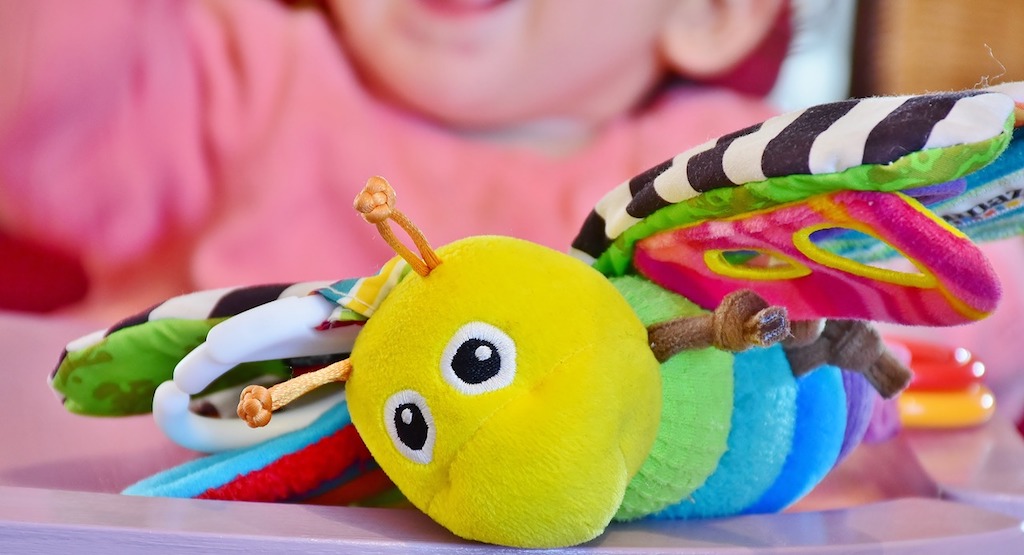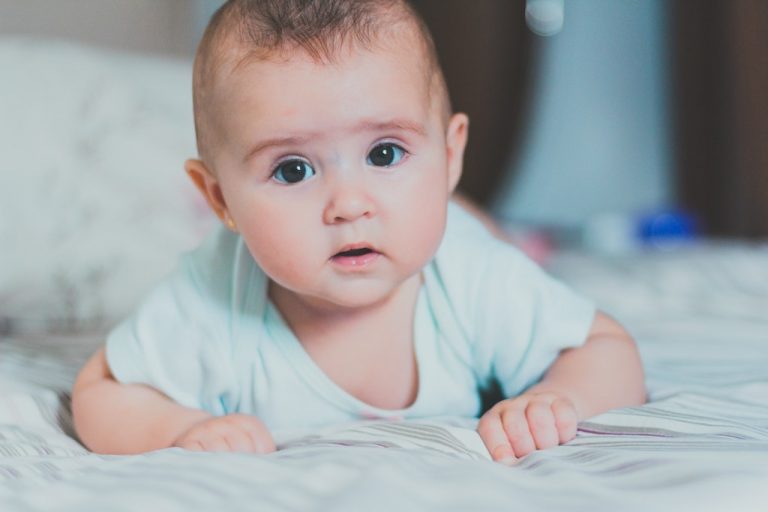SingaporeMotherhood | Baby & Toddler
September 2018
When your Baby Has A Fever

All you need to know about baby fever, from symptoms to medications, to dealing with febrile fits and a fussy little one
Babies are the perfect feel-good bundle in your arms: warm, fragrant, and oh-so-adorable. But when Baby’s skin feels warmer than usual, it could mean a fever. What should you do? Do you recall your parents and/or grandparents giving you a wipe down to try to bring your temperature down? Or do you bring out the essential oils? But do you really need to?
[banner][/banner]
What is a fever?
A fever is our body’s natural response to infections and other stimuli that cause inflammation within our body, explains Dr Christelle Tan, Specialist in Paediatrics, and Consultant at Raffles Specialists, Raffles Holland V.
Think of it as your body’s own immune defence against infections. A fever slows down the spread of bacterial growth and viruses, and enhances the body’s production of white blood cells which are responsible for fighting infections.
Why do babies get fever?
In babies, the most common cause of fever is post-vaccination fever, says Dr Tan. This is a normal response as the body builds up immunity against the germ/bug that babies are vaccinated against.
After post-vaccination fevers, the most common causes of fevers in babies are viral infections such as the common flu and stomach flu. These may have accompanying symptoms such as cough, runny nose, vomiting, diarrhoea or rashes.
Bacterial infections such as ear, throat, and urinary tract infections can occur in babies as well. However, they are generally less common compared to viral infections.
Still, if you have an infant below three months old, it’s better to err on the side of caution. Due to their immature immune systems, young babies can succumb to serious bacterial infections such as blood, brain or urinary tract infections. This is why doctors are always concerned when a young baby has a fever (and why your little one will usually be given top priority to see the paediatrician first).
Rarer causes of fever include inflammatory conditions like Kawasaki disease, cancers like leukaemia or autoimmune diseases (a condition whereby the body’s immune system attacks itself).
Symptoms of a fever in Baby
Unfortunately, apart from a temperature, there aren’t usually other specific symptoms to look out for in babies with a fever. “Babies younger than three months may not show any signs such as cough or headache,” shares Dr Low Kah Tzay, a paediatrician at Mount Elizabeth Hospital. “The signs are very general, such as lethargy, poor feeding, vomiting, abdominal distension, irritability or skin mottling.”
How to take Baby’s core temperature
With a plethora of thermometers in the market these days, it can be hard to figure out which to use for your child. The most accurate measurement of the core temperature of a child is taken using a rectal thermometer, says Dr Tan. However this method is uncomfortable and inconvenient. Alternatively, use thermometers that produce measurements from the armpit, ear, forehead and mouth.
• Under 6 months old: use the digital armpit thermometer
• Above 6 months old: you can use ear thermometers and axillary thermometers
“Forehead thermometers using infrared technology is a newer form of measurement. This is gaining favour as it is quick, convenient and requires minimal cooperation from a child. However, these thermometers are expensive and may have limited accuracy in young infants,” adds Dr Tan.
(See also: Baby’s Sick! Help!)
Fever medication for babies
It is fine for babies to take fever medication. The most common one is paracetamol (also known as calpol/progesic). This comes in the form of oral syrup or as a suppository.
Some things to take note of:
• Doctors often prescribe Paracetamol for babies if they have post-vaccination fevers, even for infants below three months. While this is generally safe, Dr Tan discourages regular repeated dosing, as a baby’s liver (which helps to clear the medication from the body) may not be fully mature.
• Do not give your baby Ibuprofen (also known as Nurofen). This popular over-the-counter medication is usually used for older children as their kidney function is more mature (as the medication is cleared from the body by the kidneys).
• Always seek the advice of doctors or pharmacists when it comes to medication for young babies.
Does my baby need to see the doctor?
“The younger the baby, the more urgently you should respond to fever,” says Dr Low. “If your baby is below two months old, and has a temperature at or above 38 deg, bring the baby to the doctor for a medical review. For older babies, observe for oter symptoms such as lethargy, vomiting, irritability, unusual rash, skin mottling, or a fever that lasts longer than two to three days.”
(See also: Does my Child really need Supplements?)
Febrile fits and fevers
Some babies get febrile fits when they have a fever. These ‘fever fits’ are common in children between six months and six years of age, and happen in 2-5 per cent of children within this age group. No one knows the exact cause of fever fits. It is believed that they occur because the child’s developing brain is more sensitive to the fever.
Do note that fever fits do not indicate epilepsy. Neither are they associated with brain abnormality or problems with child development. Most children grow out of it in time.
Furthermore, do take note that fever fits are not meningitis (which is an infection of the lining of the brain). The symptoms of meningitis can similarly include fever and fits. However, in this case the child is generally very unwell and requires immediate medical attention. Hence, an evaluation by a doctor is necessary if your child gets a fever fit.
What should you do if your baby has a febrile fit? Dr Low explains:
• Lie the baby to the side and ensure that there is nothing obstructing her airway.
• Observe for signs of jerking of limbs, clenching of teeth, uprolling of eyes and urinary or faecal soiling.
• Time the duration of the fit.
• Do not place any object into the child’s mouth.
• After the fit, bring the child to see a doctor to determine the cause of the fever.
After the first episode of febrile fit, the child is at a higher risk of developing a fit when she has a fever again,” Dr Low adds.
(See also: Childhood Fever: When to see a Paediatrician)
Baby fever and you
It can be terrifying when your baby falls ill. You may feel completely unprepared, and it can be worrying to see your normally bubbly little one looking listless and lethargic. Take heart. With the right tender loving care, your baby will soon be well again.
Header image: Source
Featured image: Source
All content from this article, including images, cannot be reproduced without credits or written permission from SingaporeMotherhood.
Follow us on Facebook, Instagram, and Telegram for the latest article and promotion updates.







